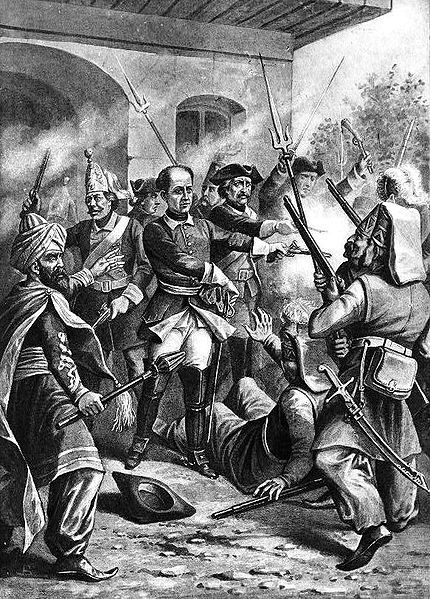The Clever King
 There are 66 citizens in a country, including the king. They all currently have a salary of $1. The king has the power to suggest changes to redistribute the salary of the citizens. Each person's salary must be a nonnegative integer number of dollars, and the salaries must sum up to $66.
There are 66 citizens in a country, including the king. They all currently have a salary of $1. The king has the power to suggest changes to redistribute the salary of the citizens. Each person's salary must be a nonnegative integer number of dollars, and the salaries must sum up to $66.
The suggestion is voted on by everyone else except for the king. Each voter will vote "yes" if it increases their current salary, "no" if it decreases their current salary, and abstain (which means they don't vote) if it doesn't change their salary. If there are (strictly) more people who vote "yes" than "no", then the suggestion passes.
If the king is allowed to make as many suggestions as he wants, what is the maximum salary the king can obtain?
The answer is 63.
This section requires Javascript.
You are seeing this because something didn't load right. We suggest you, (a) try
refreshing the page, (b) enabling javascript if it is disabled on your browser and,
finally, (c)
loading the
non-javascript version of this page
. We're sorry about the hassle.
2 solutions
The King's brother, who is king of another country, is in the exact same situation. He, however, is a bit greedy and impatient. After the first suggestion, which causes his salary to vanish, he decides to never again make any suggestion that won't increase his salary. In fact, every suggestion after the first causes his salary to increase as much as possible (that is, as much as possible at that time -- not that he necessarily plans ahead).
What is the largest possible salary he can end up with?
Log in to reply
Anyone?
Log in to reply
Thought about it, and haven't got any idea yet.
Very clearly explained!
For motivation, I showed that any set of three citizen salaries z ≥ y ≥ x with z > 1 can always be transformed to 0 , y + z 1 , x + z 2 . Then it follows that so long as we can generate a salary of $ 2 at any point -- which we can, by the king's first move being to give his salary to anyone -- , then we can shift all the money to two of the citizens. Further, those two citizens can redistribute their money in any way by the move { 0 , x , y } → { x 1 , 0 , y + x 2 } for any desired values so long as x 1 > 0 . So we can actually generate every possible distribution of up to $ 6 6 amongst the citizens, except for the case of one citizen having all $ 6 6 .
But on the first day the first citizen only has $1 salary... How does the king remove $1 from the first one and give the second one and the third one?
Log in to reply
He gives his salary to make the votes be 32(salary=0) Vs 33(salary=$2)
in the first suggestion he gives $2 to 33 people and 0 to rest including himself.
next he gives $4 to 15 people and $3 to 2(notice money is getting concentrated with less and less people).
next, $7 to 9 and $3 to 1.
so on till two people have $33 each.
now he will give $1 to 3 bankrupt subjects and keep the rest for himself.
$66-$3= $66.
Best Solution
The king can gain $ 6 3 for the salary, in this manner:
Now we will show that the king must spend at least $ 3 .
Note that on each day where the king gains some salary, there must be at least a single "no" (because the sum of the salaries of the citizens decrease), and so the king needs at least two "yes". Thus the citizens must have at least $ 2 among them, the two dollars given to those who voted "yes". In addition, any day will have at least two people with salaries. Suppose otherwise, then let on some day, the number of people with salaries decrease from two or more into one. Thus the king only receives at most one "yes" vote from this person, but at least one "no" vote from everyone else, not able to pass it.
Now we will show spending only $ 2 is not enough.
If the king only spends $ 2 , then as above, these two dollars must be on different people; call them on citizens 1 and 2 . Before this day, one of these applies:
In the last case, by the above, we need two "yes". These can only come from those who has the salary, and thus before the last day, they are both empty-handed. There's at most one "no", so before this day, at most one person has a salary. But this contradicts our result.
Thus the king needs to spend at least $ 3 .
Motivation: No matter how much we give or take, we'll only get either one "yes" or one "no" from each citizen. We can as well add as little as possible when we need a "yes", but take as much as possible when we need a "no". The first way that I thought of is below: